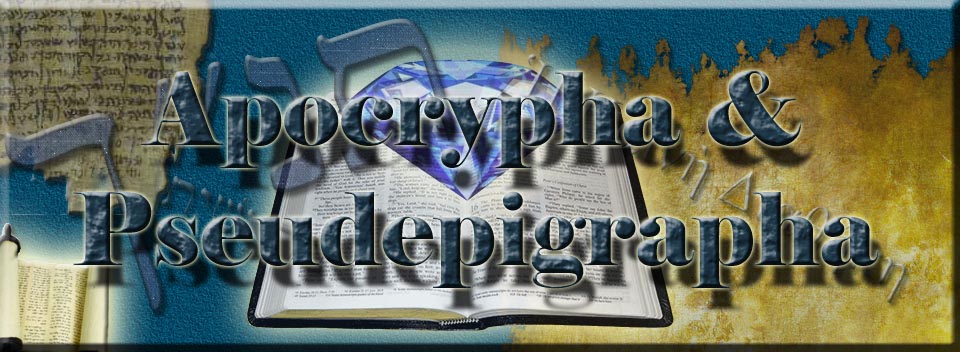
New Testament
Apocrypha* & Pseudepigrapha**
Also Known As The Noncanonical Literature***
Dead Sea Scrolls -- Community RuleThe Community Rule Serekh ha-Yahad 4Q258 Parchment Copied late first century B.C.E.Äearly first century C.E. Courtesy of the Israel Antiquities Authority (7) Originally known as The Manual of Discipline, the Community Rule contains a set of regulations ordering the life of the members of the "yahad," the group within the Judean Desert sect who chose to live communally and whose members accepted strict rules of conduct. This fragment cites the admonitions and punishments to be imposed on violators of the rules, the method of joining the group, the relations between the members, their way of life, and their beliefs. The sect divided humanity between the righteous and the wicked and asserted that human nature and everything that happens in the world are irrevocably predestined. The scroll ends with songs of praise to God. A complete copy of the scroll, eleven columns in length, was found in Cave 1. Ten fragmentary copies were recovered in Cave 4, and a small section was found in Cave 5. The large number of manuscript copies attests to the importance of this text for the sect. This particular fragment is the longest of the versions of this text found in Cave 4. Reference Qimron, E. "A Preliminary Publication of 4QS Columns VII-VIII" (in Hebrew). Tarbiz 60 (1991):435-37. English Translation of The Community Rule And according to his insight he shall admit him. In this way both his love and his hatred. No man shall argue or quarrel with the men of perdition. He shall keep his council in secrecy in the midst of the men of deceit and admonish with knowledge, truth and righteous commandment those of chosen conduct, each according to his spiritual quality and according to the norm of time. He shall guide them with knowledge and instruct them in the mysteries of wonder and truth in the midst of the members of the community, so that they shall behave decently with one another in all that has been revealed to them. That is the time for studying the Torah (lit. clearing the way) in the wilderness. He shall instruct them to do all that is required at that time, and to separate from all those who have not turned aside from all deceit. These are the norms of conduct for the Master in those times with respect to his loving and to his everlasting hating of the men of perdition in a spirit of secrecy. He shall leave to them property and wealth and earnings like a slave to his lord, (showing) humility before the one who rules over him. He shall be zealous concerning the Law and be prepared for the Day of Revenge. He shall perform the will [of God] in all his deeds and in all strength as He has commanded. He shall freely delight in all that befalls him, and shall desire nothing except God's will... Transcription and translation by E. Qimron. The Community Rule-The Qumran Library |
|
* Apocrypha - (from the Greek word απόκρυφα meaning "those having been hidden away") are texts of uncertain authenticity or writings where the authorship is questioned. These texts may have been used in some churches by were never considered as part of the Bible ** Pseudepigrapha = (from Greek pseudes = "false", "epigraphe" = "inscription") are texts falsely attributed to biblical characters or times. These books were never part of the Bible & were never considered as scripture by the church at any time despite being published under such titles of "The Lost Books of the Bible" or "The Hidden Gospels". The church has always known about them & they were never "Hidden" & could be read at any University or college. There is no deep dark secret here, just publishers trying to make a buck with interesting book titles. *** Noncanonical Literature = Never part of the Canon or Bible. |
-
Site Navigation
 Home
Home What's New
What's New Bible
Bible Photos
Photos Hiking
Hiking E-Books
E-Books Genealogy
Genealogy Profile
Free Plug-ins You May Need
Profile
Free Plug-ins You May Need
 Get Java
Get Java.png) Get Flash
Get Flash Get 7-Zip
Get 7-Zip Get Acrobat Reader
Get Acrobat Reader Get TheWORD
Get TheWORD